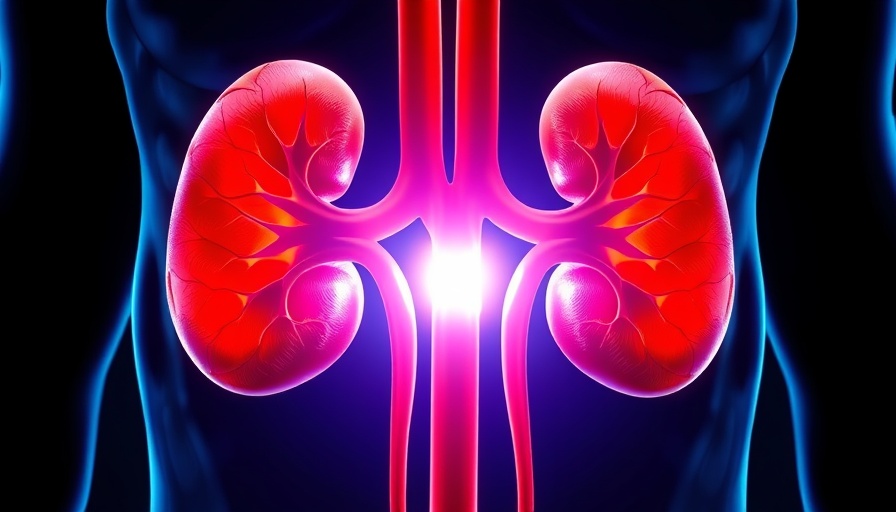
Understanding the Link Between Diet and Kidney Health
The connection between dietary patterns and chronic kidney disease (CKD) risk has become an increasingly important topic as more individuals seek ways to maintain optimal health and wellness. Recent research highlights how our food choices can significantly influence kidney health, particularly for those aged 25 and older, underscoring the need for public awareness about the importance of nutrition.
What is Chronic Kidney Disease?
Chronic kidney disease is a condition characterized by a gradual loss of kidney function over time, which can lead to kidney failure, necessitating dialysis or transplantation. Unfortunately, CKD is particularly prevalent among individuals with risk factors like diabetes and hypertension. Understanding how dietary choices impact the development of CKD is crucial for creating effective prevention strategies.
The Role of Dietary Patterns
The latest findings indicate that certain dietary patterns may be linked to lower CKD risk. Diets rich in fruits, vegetables, and whole grains, which are often referred to as naturally healthy eating habits, promote the protection of kidney function. Conversely, diets high in processed foods, sodium, and added sugars can increase CKD risk. This information aligns with increasing global trends toward health and wellness, particularly in regions like San Antonio, where community health initiatives are aimed at promoting better eating practices.
The Mediterranean Diet: An Example of Kidney-Friendly Eating
One notable dietary style that aligns with these findings is the Mediterranean diet. Rich in healthy fats from olive oil, abundant in plant-based foods like fruits and vegetables, and low in red meats, this diet exemplifies a lifestyle choice that fosters health and wellness. Studies show that those adhering to a Mediterranean diet have a significantly reduced risk for CKD. By shining a light on such evidence-based approaches, communities can inspire healthier eating habits.
Future Health Predictions: The Importance of Community Engagement
As health-related challenges continue to rise globally, the implications of poor dietary habits will inevitably affect healthcare systems. Engaging communities in discussions about nutrition and offering programs that educate individuals on meal preparation could prove to be beneficial. Local health and wellness events in San Antonio can act as platforms for these crucial conversations, fostering a culture that values preventive measures against diseases like CKD through informed dietary choices.
Counterarguments and Diverse Perspectives
While the research largely supports the idea that dietary choices affect kidney health, there are counterarguments to consider. Some experts question how much of dietary impact is attributable to genetics or other external factors. These differing perspectives highlight the necessity for ongoing research into CKD and dietary correlations.
Practical Tips for Kidney Health
To support kidney health, individuals can take several practical steps:
- Incorporate more whole foods: Choosing natural healthy foods over processed options can significantly benefit kidney function.
- Stay hydrated: Drinking plenty of water helps the kidneys function optimally.
- Monitor salt intake: Reducing sodium consumption can lower blood pressure, alleviating strain on the kidneys.
Conclusion: Take Charge of Your Kidney Health
In summary, being informed about dietary patterns helps empower individuals to make choices that can reduce their risk of chronic kidney disease. Participating in local health and wellness events, engaging with health and wellness businesses, and prioritizing nutrition can significantly contribute to improved health. Let’s turn knowledge into action for a healthier future!
 Add Element
Add Element  Add Row
Add Row 



Write A Comment